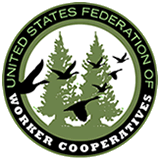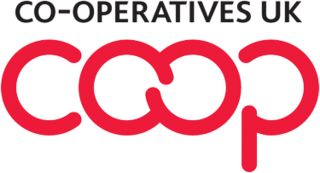
The International Atomic Energy Agency (IAEA) is an intergovernmental organization that seeks to promote the peaceful use of nuclear energy and to inhibit its use for any military purpose, including nuclear weapons. It was established in 1957 as an autonomous organization within the United Nations system; though governed by its own founding treaty, the organization reports to both the General Assembly and the Security Council of the United Nations, and is headquartered at the UN Office at Vienna, Austria.

The Organization of American States is an international organization founded on 30 April 1948 to promote cooperation among its member states within the Americas.

The United Nations (UN) is a diplomatic and political international organization whose stated purposes are to maintain international peace and security, develop friendly relations among nations, achieve international cooperation, and serve as a centre for harmonizing the actions of nations. It is the world's largest international organization. The UN is headquartered in New York City, and the UN has other offices in Geneva, Nairobi, Vienna, and The Hague, where the International Court of Justice is headquartered at the Peace Palace.

The Universal Declaration of Human Rights (UDHR) is an international document adopted by the United Nations General Assembly that enshrines the rights and freedoms of all human beings. Drafted by a UN committee chaired by Eleanor Roosevelt, it was accepted by the General Assembly as Resolution 217 during its third session on 10 December 1948 at the Palais de Chaillot in Paris, France. Of the 58 members of the United Nations at the time, 48 voted in favour, none against, eight abstained, and two did not vote.

A cooperative is "an autonomous association of persons united voluntarily to meet their common economic, social and cultural needs and aspirations through a jointly owned and democratically-controlled enterprise". Cooperatives are democratically controlled by their members, with each member having one vote in electing the board of directors. Cooperatives may include:

The Rochdale Principles are a set of ideals for the operation of cooperatives. They were first set out in 1844 by the Rochdale Society of Equitable Pioneers in Rochdale, England, and have formed the basis for the principles on which co-operatives around the world continue to operate. The implications of the Rochdale Principles are a focus of study in co-operative economics. The original Rochdale Principles were officially adopted by the International Co-operative Alliance (ICA) in 1937 as the Rochdale Principles of Co-operation. Updated versions of the principles were adopted by the ICA in 1966 as the Co-operative Principles and in 1995 as part of the Statement on the Co-operative Identity.

The Mondragon Corporation is a corporation and federation of worker cooperatives based in the Basque region of Spain.
A worker cooperative is a cooperative owned and self-managed by its workers. This control may mean a firm where every worker-owner participates in decision-making in a democratic fashion, or it may refer to one in which management is elected by every worker-owner who each have one vote.
The social economy is formed by a rich diversity of enterprises and organisations, such as cooperatives, mutuals, associations, foundations, social enterprises and paritarian institutions, sharing common values and features:

The United States Federation of Worker Cooperatives (USFWC) is a federation of worker cooperatives in the United States. USFWC was founded at the U.S. Conference of Democratic Workplaces in Minneapolis, Minnesota in May 2004.
The International Cooperative Alliance (ICA) is a non-governmental cooperative organization founded in 1895 to unite, represent and serve cooperatives worldwide. The ICA is the custodian of the internationally recognised definition, values and principles of a cooperative in the ICA Statement on the Cooperative Identity. The ICA represents 315 co-operative federation and organisations in 107 countries.

A consumers' co-operative is an enterprise owned by consumers and managed democratically and that aims at fulfilling the needs and aspirations of its members. Such co-operatives operate within the market system, independently of the state, as a form of mutual aid, oriented toward service rather than pecuniary profit. Many cooperatives, however, do have a degree of profit orientation. Just like other corporations, some cooperatives issue dividends to owners based on a share of total net profit or earnings ; or based on a percentage of the total amount of purchases made by the owner. Regardless of whether they issue a dividend or not, most consumers’ cooperatives will offer owners discounts and preferential access to goods and services.

The Community of Democracies (C.O.D), established in 2000, is an intergovernmental coalition of states. Its aim is to bring together governments, civil society and the private sector in the pursuit of the common goal of supporting democratic rules, expanding political participation, advancing and protecting democratic freedoms, and strengthening democratic norms and institutions around the world. The Warsaw Declaration had outlined the task of promoting democracy. It is disputed if the coalition qualifies as an International Organization in the legal sense.

Co-operatives UK is a British co-operative federation described as "the central membership organisation for co-operative enterprise throughout the UK". It was founded in 1870 as the Co-operative Central Board, changing its name to the Co-operative Union before finally becoming Co-operatives UK following its merger with the Industrial Common Ownership Movement (ICOM) in 2001. Historically associated with the consumer co-operatives, the merger broadened its scope to include worker co-operatives and it now exists to support and promote the values of the entire co-operative movement throughout the UK.

The National Bank for Agriculture and Rural Development (NABARD) is an All India Financial Institution (AIFI) and an apex Regulatory Body for overall supervision of Regional Rural Banks, State Cooperative Banks and District Central Cooperative Banks in India. It is fully owned by the Department of Financial Services (DFS) under the Ministry of Finance.

Cooperative economics is a field of economics that incorporates cooperative studies and political economy toward the study and management of cooperatives.
The history of the cooperative movement concerns the origins and history of cooperatives across the world. Although cooperative arrangements, such as mutual insurance, and principles of cooperation existed long before, the cooperative movement began with the application of cooperative principles to business organization.

The International Council of Design is an international organisation representing the professions of design. The Council was founded in London in 1963 and celebrated its 50th anniversary on 27 April 2013. It is a non-profit, non-partisan, "member-based network of independent organisations and stakeholders working within the multidisciplinary scope of design."

The Union for the Mediterranean is an intergovernmental organization of 43 member states from Europe and the Mediterranean Basin: the 27 EU member states and 16 Mediterranean partner countries from North Africa, Western Asia and Southern Europe. It was founded on 13 July 2008 at the Paris Summit for the Mediterranean, with an aim of reinforcing the Euro-Mediterranean Partnership (Euromed) that was set up in 1995 as the Barcelona Process. Its general secretariat is located in Barcelona, Catalonia, Spain.















